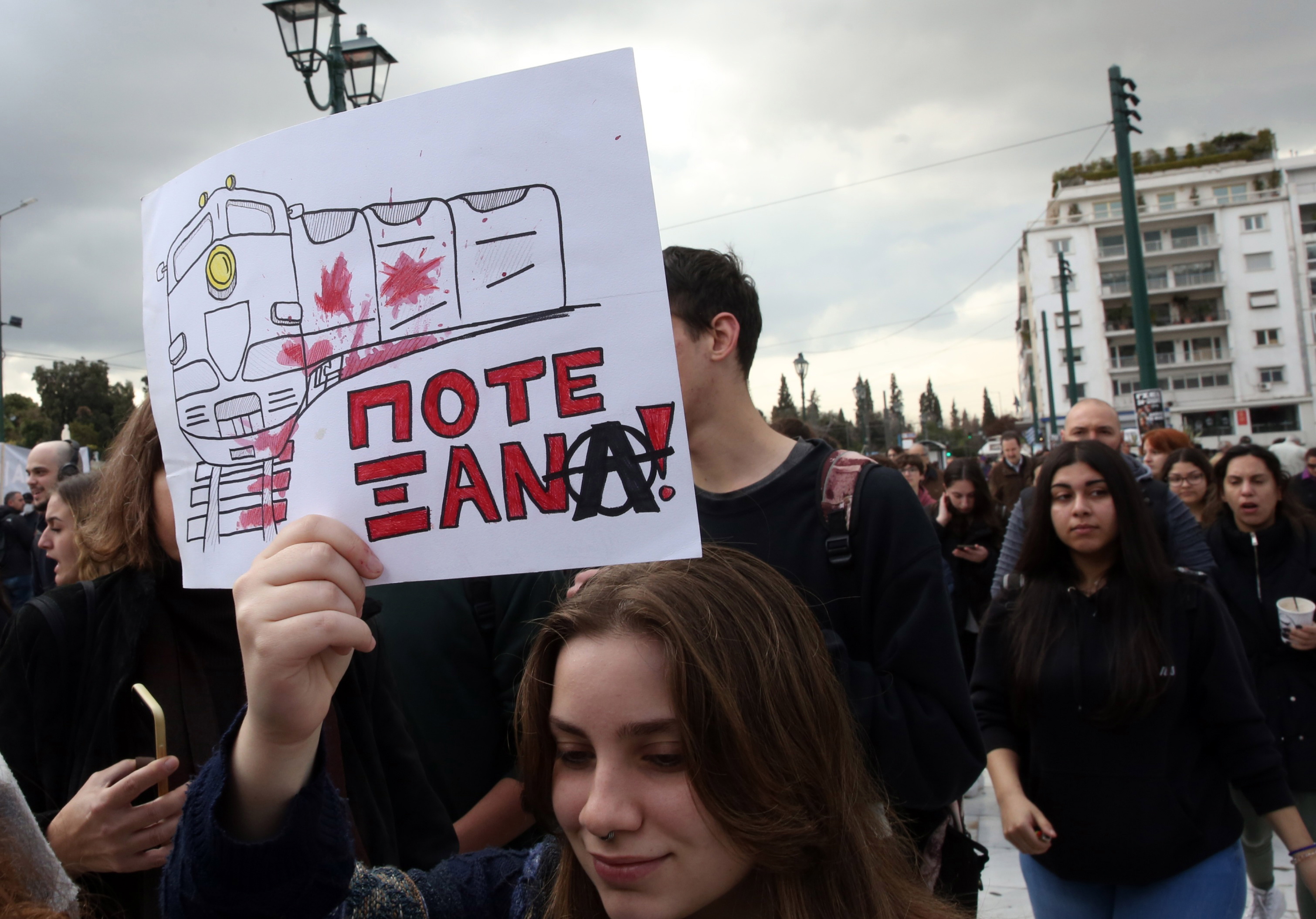Strikes, protests and clashes over deadly rail collision

Clashes broke out in Athens Thursday after a general strike in Greece that was called in response to a rail disaster last month.
Protesters hurled gasoline bombs at a police cordon near parliament. Riot police responded with tear gas and sound grenades, during the brief flare-up of violence that disrupted large, peaceful demonstrations. There were no immediate reports of injuries or arrests.
The strike grounded flights and extensively disrupted services, while large protests were also held in other cities across the country. Clashes between youths and police also erupted in the southern port city of Patras.
The strike also kept ferries to the Greek islands at port, left public hospitals running with emergency staff, halted public transport services and led to class cancellations at state-run schools.
Unions have rallied behind railway workers’ associations that have staged rolling walkouts since the head-on train collision in northern Greece on Feb. 28 that left 57 people dead and dozens injured.

“This government has had four years to fix problems with the rail network, but instead of owning up to that responsibility, they are blaming everyone else,” Popi Tsapanidou, a spokeswoman for main leftist opposition party Syriza, told private Skai television.
The main protests were held in Thessaloniki, Greece’s second-largest city, and in the capital Athens, where thousands chanted “this crime will not be forgotten” as they reached a police cordon outside a private rail operator.
Mitsotakis has promised clearer boundaries between privatized services and the authorities overseeing them, seeking assistance from European Union experts in drawing up the changes. His political opponents argue that the poorly managed dismantling of agencies under state control has ultimately compromised rail safety.
[AP]





